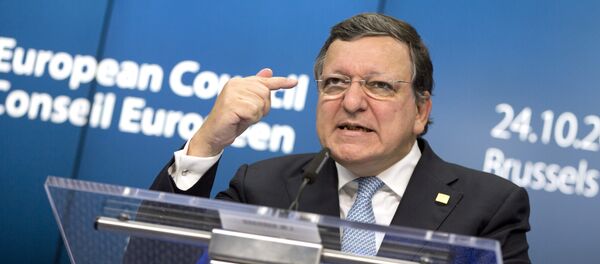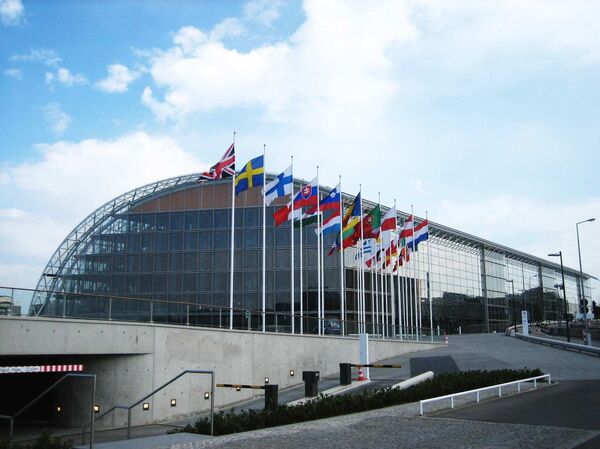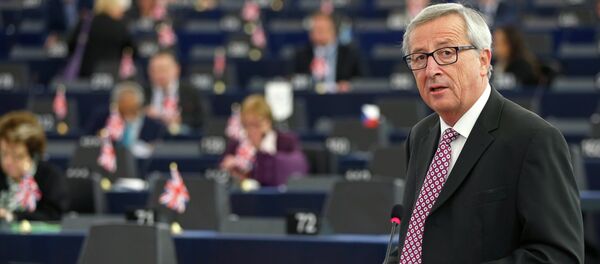Ombudsman Emily O'Reilly sent a formal letter opening the case after Bankwatch, ClientEarth and Counter Balance highlighted the EIB's lack of transparency, and the organization's attempts to block scrutiny. O'Reilly will investigate the case, and ask the EIB to explain its policies. The NGO trio issued the complaint because the EIB blocked their challenges to its transparency policy.
The EIB is the EU's nonprofit bank, and invests an estimated US$84 billion (€80bn) internationally every year, with an avowed focus on climate change investment and development and climate change investment, in line with EU policy. Member States are the bank's shareholders.
Despite the body existing since the Treaty of Rome in 1958, and being the financial arm of the EU, the body barely registers on the public radar, and references to its activities are a rare occurrence in the media.
A spokesperson for Counter Balance, an NGO allied with Bankwatch, said the move was a most welcome one — transparency is vital for the bank, as it invests using taxpayer money, and its investments impact policy decisions.
"The EIB was asked to revise its transparency policy back in 2014 — namely, to significantly improve the quality and quantity of information it discloses, and the way it responds to requests from journalists and NGOs and the like. It was a tough process getting information out of the EIB, and we hoped reform would remedy this. However, the EIB adopted a set of rules that were much watered down — moreover, the rules are not in line with EU legislation," the spokesperson for Counterbalance told Sputnik.
In effect, the spokesperson said, the bank creates illegal exceptions meaning people can barely scrutinize its activities. This was a key area of contention for the trio in 2014 — attempting to block public challenges to this policy means the organization is doubly failing in its duties and objectives.
Due to the bank's opacity, it's difficult to tell where some of the EIB's money truly ends up. On top of supporting private sector businesses via loans, it invests in mutual funds — many of which are domiciled in tax havens to avoid tax, the spokesperson noted.
Investments made in collective fund vehicles are also murky, as the bank only discloses some of the funds in which it invests, not what the funds themselves invest in. As a result, it's impossible to know with certainty that all funds are being spent in the public interest, as per the bank's own stated raison d'etre.
"The bank also invests in the fossil fuel industry. In 2011, we published research which indicated the EIB had provided the sector with US$16.8 (€16bn) in loans since 2007. This undermines the EU's climate goals which the EIB is meant to promote. They can't hope to meet the Paris Agreement's requirements if they continue to do so. No public money should be invested in these businesses," the spokesperson concluded.
The trio hope the Ombudman's investigation will shed light on the EIB's culture of secrecy, and the Ombudsman will make the bank "raise the bar" on transparency.
Concerns about the lack of transparency at the EIB are nothing new.
In November 2016, Transparency International (TI) expressed disquiet at the bank's government structure — the EIB has eight vice presidents, each of which is in charge of allocating funding to their home country. Such a structure created obvious conflict of interest issues, and would never be permitted in other EU organs, such as the Commission, TI stated.
.@EIB VPs are in charge of their countries, which would never be OK for Commissioners, says @leo_axt in Playbook: https://t.co/Hgq9WFAlwS pic.twitter.com/ByviJC0JuJ
— Transparency Int. EU (@TI_EU) November 16, 2016
Furthermore, at the time the report was published, the EIB only actively excluded investment in three entities, despite lending more than the World Bank, which has excluded 820 — and many of the bank's board members had manifold private sector interests.
TI also published a list of recommendations for the bank, suggesting all members of the Board of Directors should disclose declarations of interests, the EIB should join the EU Transparency Register and require lobbyists' registration for meetings with the president and vice presidents, and follow the European Commission's calls to support its anti-tax avoidance agenda.





